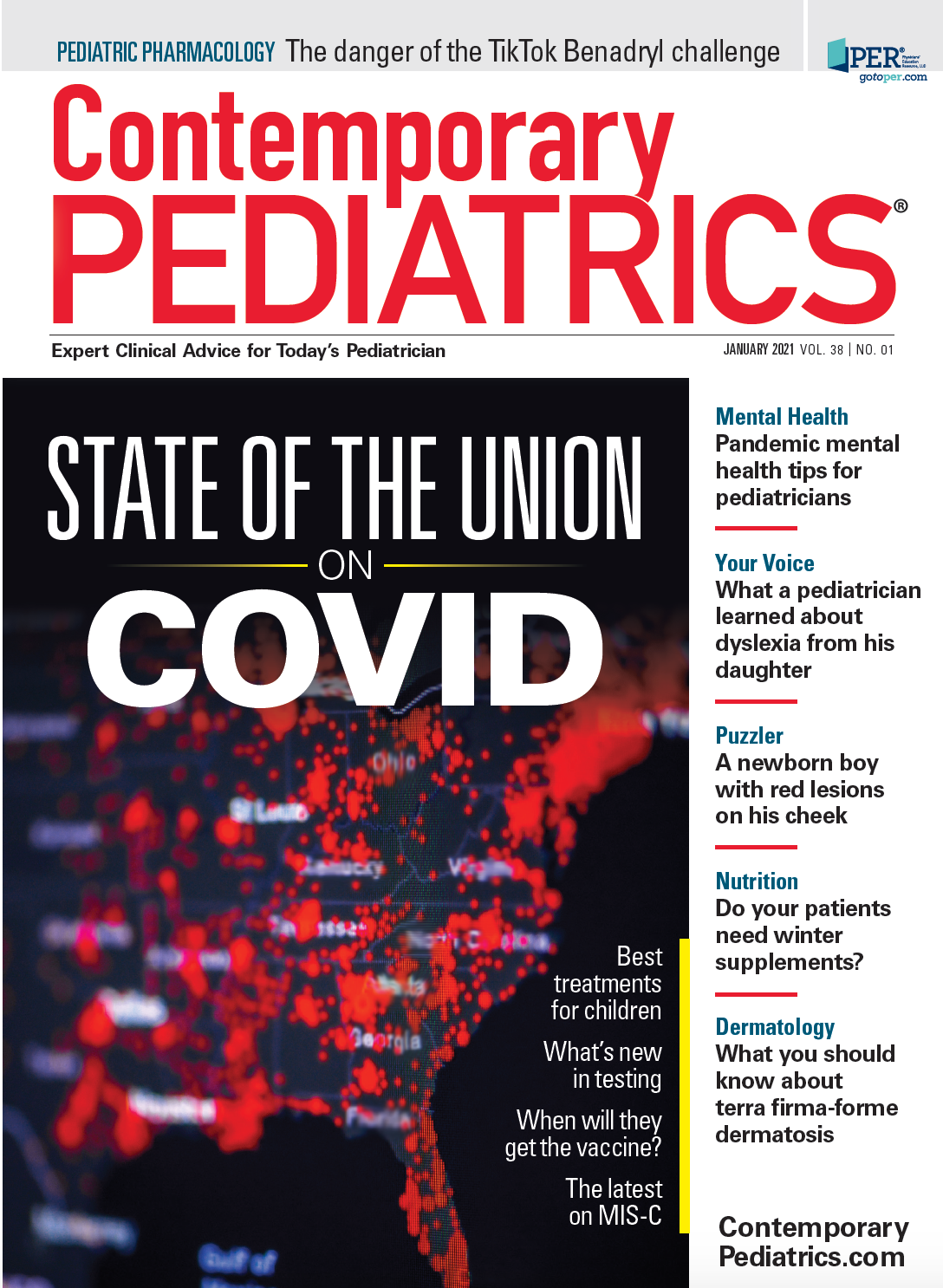Plagiocephaly may be an early indicator of developmental delay risk
Plagiocephaly has become an increasingly common diagnosis for infants. A study examines whether it could offer a clue about the child's risk of developmental delay.
A study of a large, multistate primary care group of more than 77,000 children spanning multiple years found a significant association between positional skull deformity (plagiocephaly) and developmental delay. The retrospective analysis relied on electronic medical record data from 45 primary care sites during a 17-year period and included children aged 5 years or younger who were classified as having plagiocephaly if they were diagnosed by 12 months of age.
Of the 77,108 patients seen by 12 months, 2315 (3%) were diagnosed with plagiocephaly (median age of diagnosis, 3 months), with prevalence of the condition increasing over time from 0.1% in 2000 to a maximum of 6.2% in 2016. Patients with plagiocephaly were more likely than their peers to be male, white, have private insurance, have English as a primary language, and have a history of prematurity and abnormal tone and torticollis. Almost 9% of total patients had a developmental delay diagnosis, with 17.5% of the plagiocephaly group having such a diagnosis compared with 8.7% in the group without plagiocephaly. Further, plagiocephaly was independently associated with increased odds for any developmental delay, even after controlling for sociodemographic and clinical factors. As for specific delays, motor, language, social, and general delay—but not cognitive delay—were significantly more likely in the plagiocephaly group. In patients with both plagiocephaly and developmental delay, plagiocephaly generally was diagnosed before developmental delay, at a median age of 3 months and 15 months, respectively (Rohde JF, et al. J Dev Behav Pediatr. Epub ahead of print).
Thoughts from Dr. Farber
You may hear about this study from worried parents. I understand why plagiocephaly could be associated with motor delay, but it is harder to account for other delays. I also note that the percentage of children with diagnosed delays seems high. In any case, most children with plagiocephaly will be developmentally normal. Follow them carefully, but you can reassure parents that their child likely will be fine.

Having "the talk" with teen patients
June 17th 2022A visit with a pediatric clinician is an ideal time to ensure that a teenager knows the correct information, has the opportunity to make certain contraceptive choices, and instill the knowledge that the pediatric office is a safe place to come for help.
Meet the Board: Vivian P. Hernandez-Trujillo, MD, FAAP, FAAAAI, FACAAI
May 20th 2022Contemporary Pediatrics sat down with one of our newest editorial advisory board members: Vivian P. Hernandez-Trujillo, MD, FAAP, FAAAAI, FACAAI to discuss what led to her career in medicine and what she thinks the future holds for pediatrics.